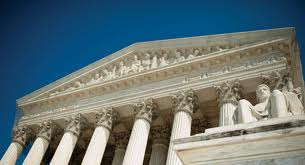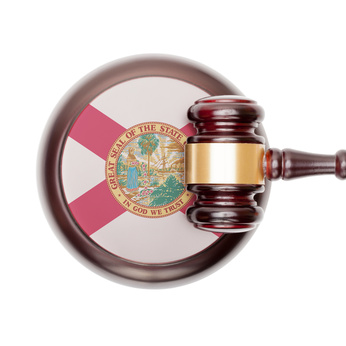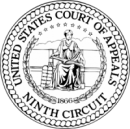The Court of Appeal for the Third District of the State of Florida recently held that the trial court had subject matter jurisdiction to hear a common law action to recover a deficiency judgment after an earlier residential mortgage foreclosure action in the same court was already completed. The Court reasoned that the applicable statute expressly provided for such a common law action, and although the foreclosure judgment reserved jurisdiction to adjudicate any claim seeking a deficiency, it neither granted nor denied it. A copy of the opinion is available at: Link to Opinion. A mortgage loan servicer obtained a…
The U.S. District Court for the Middle District of Florida recently confirmed that Florida’s statute of limitations did not bar a mortgagee from filing a new foreclosure action based on non-payment or other kinds of defaults within the past five years, even where the prior foreclosure action was dismissed without prejudice and acceleration of the mortgage occurred more than five years prior to the second foreclosure action. In so ruling, the Court dismissed an amended complaint for declaratory judgment seeking to invalidate a mortgage. A copy of the opinion is available at: Link to Opinion. A property owner sought a…
Yesterday’s oral argument before the U.S. Supreme Court in Spokeo v. Robins suggests a struggle to fashion an understanding of what can constitute an “injury in fact.” It pitted the issue of whether a plaintiff’s standing to sue requires a tangible, concrete injury (loss of money, a job or property right) against the concept that the law can identify a “harm” (in this case, inaccurate information in a credit report) which itself is a real injury. Finding the Injury Spokeo v. Robins concerns an alleged violation of the Fair Credit Reporting Act. Robins claimed Spokeo compiled a report about him that contained false information…
The Second District Court of Appeal of the State of Florida recently affirmed an award of attorney’s fees and costs to two borrowers, even though the borrowers moved for fees and costs more than 30 days after the mortgagee filed a notice of voluntary dismissal that was expressly made conditional upon the parties “agreeing to pay their own attorneys’ fees and costs.” In so ruling, the Appellate Court confirmed that a conditional notice of voluntarily dismissal was ineffective to commence the 30-day period within which to move for attorney’s fees and costs under Florida law. A copy of the opinion…
The Illinois Appellate Court, First District, recently reversed a trial court’s ruling that lack of standing in a mortgage foreclosure case was not an affirmative defense. The Court further remanded the case to allow the borrowers to take discovery, which the Court held was improperly denied by the trial judge. A copy of the opinion is available at: Link to Opinion. A mortgagee filed a foreclosure action, alleging that the borrowers failed to make payments when due. In response, the borrowers filed an answer, which included affirmative defenses of alleged lack of standing and alleged lack of capacity to sue.…
The U.S. Court of Appeals for the Second Circuit recently held that identity theft claims under New York’s Fair Credit Reporting Act based on a bank’s alleged vicarious liability for identity theft supposedly perpetrated by its employees are not preempted by the federal Fair Credit Reporting Act (FCRA). However, to the extent that the claims could arguably be read to include the theory that the bank was liable because it furnished false information to consumer reporting agencies, the Court held that such claims are preempted under the FCRA because they plainly concern the bank’s legal responsibilities as a furnisher. A…
The Appellate Division of the Circuit Court of the 15th Judicial Circuit in Palm Beach County, Fla. recently held that a first mortgagee who took title by foreclosure was not liable for homeowner’s association assessments coming due before it acquired title because the association’s declaration of restrictive covenants absolved a first mortgagee from liability for assessments coming due before it acquires title. A copy of the opinion is available at: Link to Opinion. An individual purchased real property in a subdivision that was subject to a recorded declaration of covenants, restrictions, conditions and easements. The homeowner defaulted on her mortgage…
In an Oct. 23 ruling, the Third Circuit Court of Appeals offered a mixed opinion that has the effect of both limiting and expanding the interpretation of automatic telephone dialing systems (ATDS), which can trigger a claim under the federal Telephone Consumer Protection Act. While the ruling poses increased risk for businesses that use dialers to contact customers, it also offers guidance on what can be done to reduce that risk. The opinion, Dominiguez, et. al v. Yahoo, Inc., is not precedential, meaning courts within the Third Circuit (New Jersey, Delaware, Pennsylvania and U.S. Virgin Islands) are not obligated to follow…
Proposed legislation to enact Massachusetts’ Family Financial Protection Act (S. 146 – H. 804) was considered during a hearing before the Joint Financial Services Committee on Oct. 27. The legislation, in part, defines active and passive debt buyers as “debt collectors.” It also places limits on garnishable wages, establishes a three-year statute of limitations, prohibits revival upon payment, and places limits on a successful plaintiff’s award of interest and attorney’s fees. The legislation contains the following: “Debt Buyer” means a person or entity that purchases delinquent or charged-off consumer loans or consumer credit accounts, or other delinquent consumer debt for collection purposes, whether it collects the debt itself or hires a…
Three consent decrees issued over the past few months present clear challenges for the debt buying industry, creditors and companies that provide services to them. The first, between the Consumer Financial Protection Bureau and JP Morgan Chase Bank, contained an agreement altering the bank’s debt collection activities. The bank also agreed that any debt sold by it would contain a restriction prohibiting resale by the subsequent purchaser. More specifically, and among other things, the Chase Bank Consent Order (copy available here) requires Chase to do the following: Stop selling loans and other debts that: (1) were discharged in Chapter 7 bankruptcy; …
The District Court of Appeal of Florida, First District, recently denied a property owner’s effort to appeal the trial court’s order limiting the property owner’s extensive discovery requests to a mortgagee relating to standing and satisfaction of mortgage. In so ruling, the Appellate Court concluded that the trial court’s order limiting discovery did not effectively eviscerate the property owner’s affirmative defenses. A copy of the opinion is available at: Link to Opinion. A property owner propounded broad discovery requests related to the defenses that the mortgagee lacked standing to foreclose; and that all mortgages on the property had been satisfied…
The U.S. Court of Appeals for the Ninth Circuit, in a case of first impression, recently held that section 1328(f) of the Bankruptcy Abuse Prevention and Consumer Protection Act (BAPCPA), which bars so-called “Chapter 20” debtors from receiving a discharge at the conclusion of their Chapter 13 reorganization if they received a Chapter 7 discharge within four years of filing the petition for Chapter 13 relief, does not prevent a debtor from voiding a secured creditor’s lien under section 506(d) of the Bankruptcy Code. A copy of the opinion is available at: Link to Opinion. In 2007, husband and wife…












